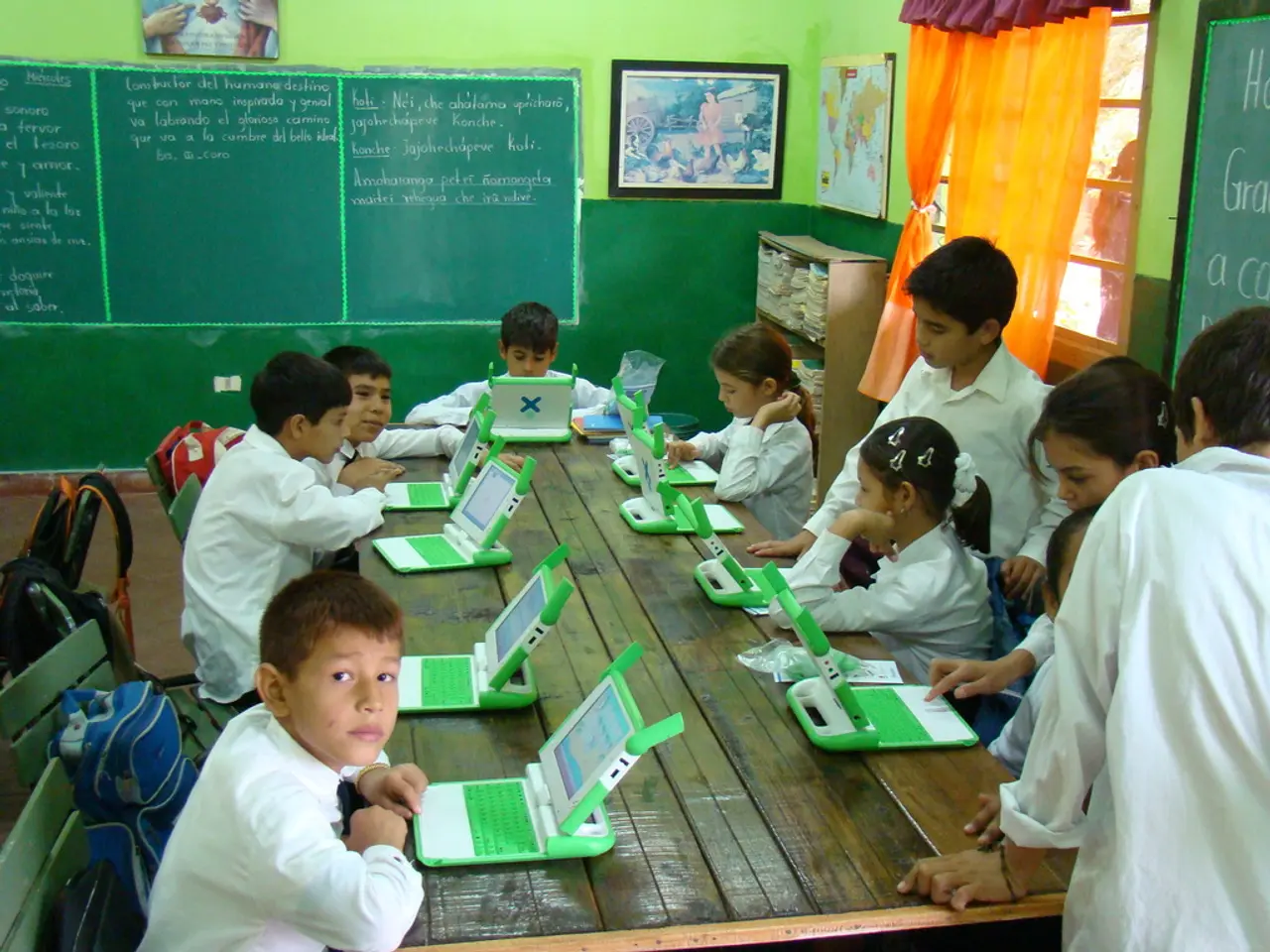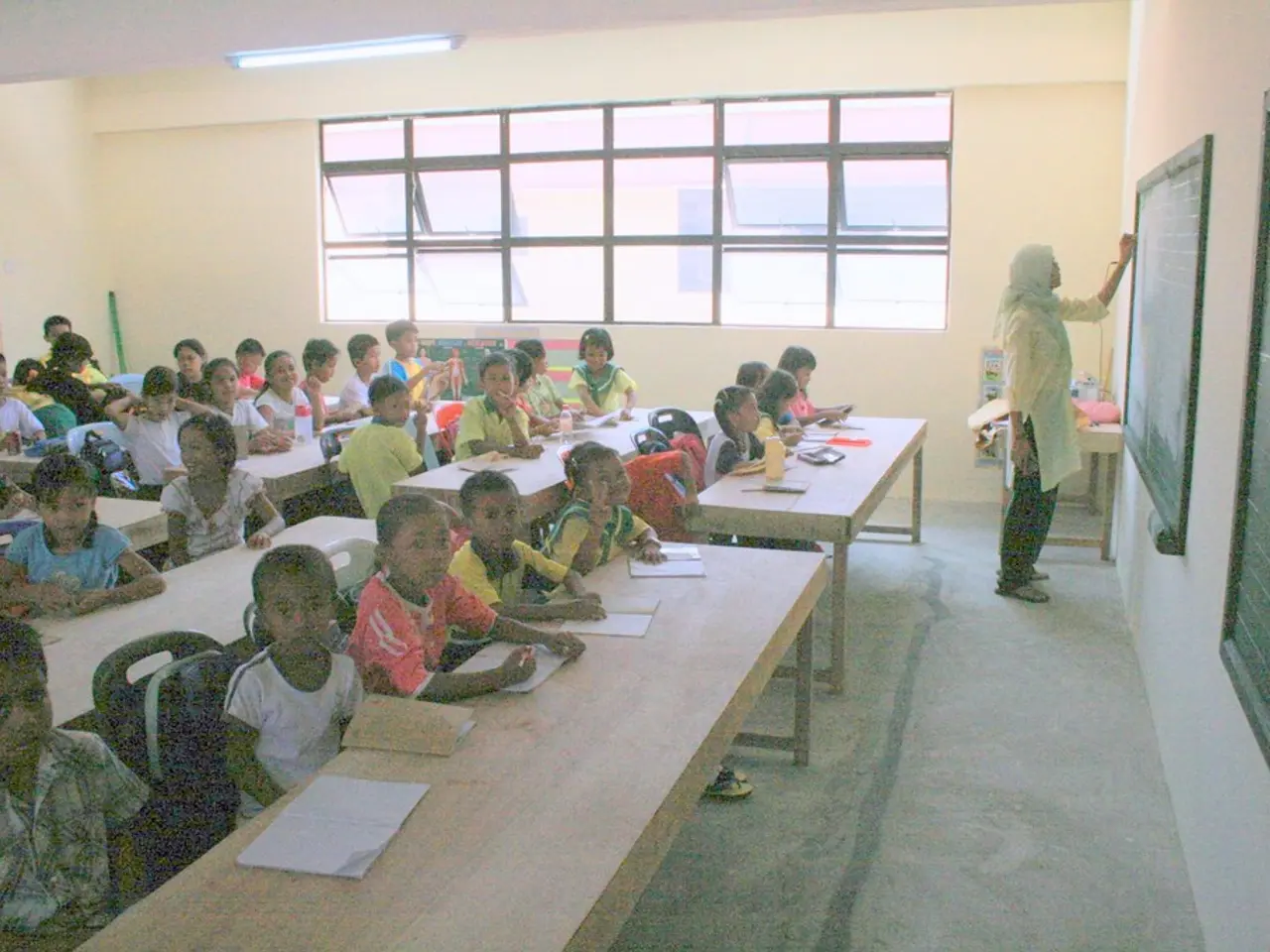DRC Introduces Blockchain Technology to Combat Diploma Forgery
The Democratic Republic of Congo (DRC) has taken a significant step towards modernizing its education sector by introducing a blockchain-based platform called "e-Diplôme". This innovative system is designed to combat diploma fraud, streamline administrative processes, and boost trust in academic credentials [1][2][3].
The e-Diplôme platform securely stores and verifies the authenticity of state-issued diplomas on the blockchain, enabling instant online verification by graduates, employers, universities, or embassies. Individuals upload their certificates to the platform, which then stores them "on-chain" and provides a QR code that allows verified, tamper-proof access to these diplomas at any time. The platform ensures permanent archiving of academic records, protecting them from data loss and physical deterioration [1].
Only certificates issued by the country's Ministry of Education and new citizenship documents can be uploaded, ensuring the integrity of data entered. While blockchain secures the documents once uploaded, the system's immutability applies only to information fed into it, so pre-uploaded forgery remains a challenge that the platform may not immediately detect [1].
The e-Diplôme platform aims to streamline interactions between schools, ministries, and recruiters by removing paper documents and manual processing. This digitization and blockchain-based verification system is expected to reduce fraud significantly and improve the efficiency of the education sector [2][3].
The launch of the e-Diplôme platform is part of a broader strategy by the Congolese government to digitize public services. In addition, the DRC is working with a Singapore-based firm to develop a blockchain-based digital identity platform (DRCPass) to further support public service access [4].
The e-Diplôme platform was formally presented by the Congolese government during the Council of Ministers meeting held on July 18 in Kinshasa. Officials from the Ministry of Communication and Media emphasized that the e-Diplôme platform represents a significant shift in how the country manages educational records [5].
The launch of the e-Diplôme platform signifies the DRC's intent to move forward in the digital era, setting the stage for a more transparent and technologically advanced future in education governance. The e-Diplôme project reinforces the importance of digital innovation in reinforcing state institutions and safeguarding citizen data [2][3].
The e-Diplôme platform could serve as a model for other countries grappling with similar issues of document authenticity and slow bureaucratic processes. By embracing emerging technologies, the DRC is positioning itself as a regional leader in digital education administration across Central Africa [1][2][3].
[1] "DR Congo Launches Blockchain Diploma Verification System to Combat Fraud", Cointelegraph, 2021. [2] "DR Congo Launches Blockchain-Based Diploma Verification System", CoinDesk, 2021. [3] "DR Congo Unveils Blockchain-Based Diploma Verification System", Bitcoin Magazine, 2021. [4] "DR Congo and Singapore-Based Firm Collaborate on Blockchain-Based Digital Identity Platform", Cointelegraph, 2021. [5] "DR Congo Presents e-Diplôme Platform for Managing and Securing Academic Qualifications", Government of the Democratic Republic of Congo, 2021.
The e-Diplôme platform, a blockchain-based system for securely verifying academic credentials, is also being developed to reinforce the digital identity platform (DRCPass) of the Democratic Republic of Congo (DRC). This project underscores the significance of digital innovation in fortifying state institutions and safeguarding citizen data, potentially serving as a model for other countries facing similar challenges in document authenticity and bureaucratic processes.
To further modernize its education sector, the DRC is leveraging a blend of technology and finance, aiming to boost trust in academic credentials, eliminate fraud, and elevate the efficiency of administrative processes, thus fostering a technologically advanced future in education governance.




